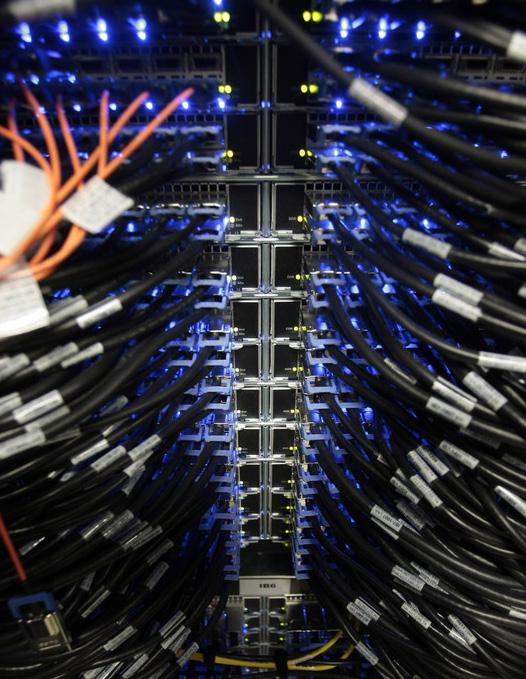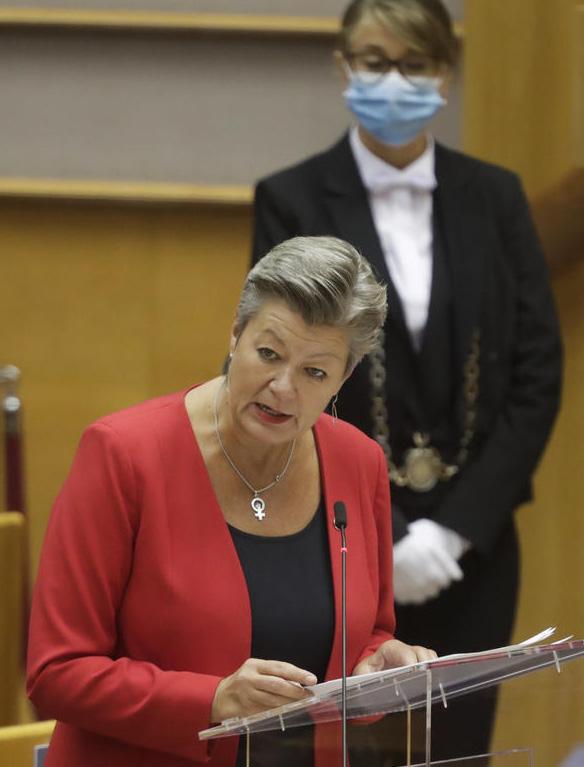
5 minute read
Communiqeu
CorporateDispatchPro
KEITH ZAHRA
EU RECOVERY
EU issues first social bond under SURE instrument
The European Commission has issued a €17 billion inaugural social bond under the EU SURE instrument to help protect jobs and keep people in work.
The issuing consisted of two bonds, with €10 billion due for repayment in October 2030 and €7 billion due for repayment in 2040. The EU executive reported very strong investor interest in this highly rated instrument, and the bonds were more than 13 times oversubscribed, resulting in favourable pricing terms.
Both bonds were issued on attractive terms, reflecting the high level of interest. These represent attractive pricing conditions for the Commission’s largest ever bond issuance and a favourable debut for the SURE programme. The terms on which the Commission borrows are passed on directly to the Member States receiving the loans.
The banks that supported the European Commission with this transaction were Barclays (IRL), BNP Paribas, Deutsche Bank, Nomura and UniCredit. The funds raised will be transferred to the beneficiary Member States in the form of loans to help them cover the costs directly related to the financing of national short-time work schemes and similar measures as a response to the pandemic.
In that context, the Commission announced earlier this month that it would issue the entire EU SURE bond of up to €100 billion as social bonds, and adopted an independently evaluated Social Bond Framework.


CorporateDispatchPro

KEITH ZAHRA
INFORMATION TECHNOLOGY
EU invests a further €144.5 million in world-class supercomputers for researchers and businesses
The European High-Performance Computing Joint Undertaking, which pools European resources to buy and deploy world-class supercomputers and technologies, co-signed a contract worth €144.5 million to acquire the LUMI supercomputer.
At the dawn of the third decade of the century, EU is pushing to take a leading role in next-generation supercomputing infrastructure that will be accessible to all European researchers, industry and businesses, to run hundreds of new applications in artificial intelligence and personalised medicine, drug and material design, genomics, weather forecasting, combatting climate change and many more. The positive effects that supercomputers have on society can already be seen in various areas, such as in the fight against major diseases, including cancer, the coronavirus and many other viral infections, or in supporting the green transition and the European Green Deal, by assisting in urban and rural planning, waste and water management and control of environmental degradation.
For instance, supercomputers are helping scientists to find an effective treatment for Covid-19 patients. Another example is the EU’s Destination Earth initiative aiming to develop a very high-precision digital model of the Earth, which could improve weather forecasting, water management, and environmental modelling.


CorporateDispatchPro

KEITH ZAHRA
HUMAN TRAFFICKING Half of Human Trafficking Victims trafficked in their own State
Nearly half of the human trafficking victims in the European Union are EU citizens (49%), and one third (34 %) of the victims were trafficked within their own EU Member State. The vast majority of trafficking victims are women and girls (72%). One in every four (22%) victims of trafficking is a child.
These were some of the key figures which emerged from the Commission’s Third Report on the progress made in the fight against human trafficking. Taking stock of measures taken since 2017, the report highlights recent trends in human trafficking, the particular complexities in the context of the coronavirus pandemic, and remaining challenges that the EU and Member States must address as a matter of priority.
Overwhelmingly, the victims are women and girls, with Civil Rights Commissioner Ylva Johansson saying that this is once again a reminder that Europe needs to act to prevent the horrific crime of human trafficking, to assist and protect the victims, and to stop the culture of impunity of the perpetrators.
Progress has been made in several areas, such as transnational cooperation particularly through referral mechanisms and as demonstrated through the joint efforts of Europol and Eurojust. While trafficking for sexual exploitation remains the predominant purpose for trafficking, labour exploitation is also reported. These are also linked to the context of migration.
The report found that the number of prosecutions and convictions remains low in relation to the reported number of victims. In 2017/2018, 14,145 victims were registered, but there were only 6,163 prosecutions and 2,426 convictions. Another worrying development notes how the crime is increasingly online as traffickers make increasing use of the internet and social media to recruit and exploit victims.


CorporateDispatchPro

KEITH ZAHRA
ARTIFICIAL INTELLIGENCE
EP adopts proposals to regulate Artificial Intelligence
The European Parliament has adopted proposals on how the EU can best regulate Artificial Intelligence (AI) in order to boost innovation, ethical standards, and trust in technology.
This ranks the democractically-elected body among the first institutions to put forward recommendations on what AI rules should include with regards to ethics, liability, and intellectual property rights. These recommendations will pave the way for the EU to become a global leader in the development of AI. The Commission legislative proposal is expected early next year.
The legislative initiative urges the EU Commission to present a new legal framework outlining the ethical principles and legal obligations to be followed when developing, deploying, and using artificial intelligence, robotics and related technologies in the EU including software, algorithms and data.
The EP insisted that future laws should be made in accordance with several guiding principles, including: a human-centric and humanmade AI; safety, transparency and accountability; safeguards against bias and discrimination; right to redress; social and environmental responsibility; and respect for privacy and data protection.



